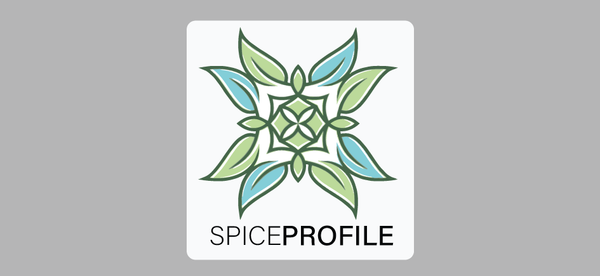Coriander seeds are a popular aromatic spice used across different cuisines across the world. Derived from the plant Coriandrum sativum, these seeds are a staple in many kitchens and have an important place traditional medicine cabinet. They make a flavorful spice to add a unique punch to your curries or enhance the flavor of your marinades.
We have come up with some interesting facts about coriander seeds that will help you learn more about this spice and will also inspire you to have it added to your culinary creations.
Why Coriander Seeds Stand Out?
Coriander seeds are unique because of their distinct flavor, versatility in culinary application, and nutritive values. Here are some reasons which highlight why coriander seeds so popular.
- Flavor Profile: The warm, citrusy flavor with a hint of sweetness and slight floral notes make these seeds a versatile addition to sweet and savory dishes.
- Versatility in Culinary Use: These seeds are used in curries, pickles, marinades, spice blends, baked goods and even desserts because of their adaptability. They are used across various cuisines in different forms that complement the requirement of the dish.
- Nutritional Benefits: Coriander seeds are a rich source of dietary fiber, minerals like iron, magnesium, and calcium and vitamins like C and K.
- Health Benefits: Coriander seeds are known for their digestive properties. They have been found to be effective in reducing bloating and gas. These seeds also have anti-inflammatory and antimicrobial properties.
These are some unique characteristics of coriander seeds that make them an incredible ingredient in the kitchens around the world, contributing to their popularity and versatility.
Facts About Coriander Seeds That You May Not Know
Explore the rich history of coriander seeds, their scientific significance, culinary importance and more with the facts shared below:
- Historical Significance: Coriander seeds are one of the oldest spices known to mankind. Their usage dates back to at least 5000 BCE. They were used in Ancient Egypt in their cuisine and were also placed in their tombs as offerings. They were found in the tomb of Tutankhamun, indicating their use in ancient Egypt around 1325 BC.
- Botanical Characteristics: Coriander seeds are the dried fruits of the coriander plant. When they are left to mature on the plant, these seeds gradually turn brown and develop the ridged texture.
- Essential Oils: Coriander seeds are a rich source of essential oils, particularly linalool and pinene. These essential oils are responsible for contributing to the aroma and medicinal properties of the seeds. These oils are also used in perfumes, cosmetics, and flavorings.
- Global Presence: Coriander seeds are widely used across different cuisines in the world. From Indian to Latin American, Middle Eastern, European and Thai, these seeds are used in all these cuisines in a certain style that complements the uniqueness of these cuisines.
- Scientific Importance: Various studies have been conducted to explore the amazing health benefits of coriander seeds. Studies have also been conducted to investigate their antioxidant, antimicrobial and lipid-lowering effects.
- Culinary Importance: These brownish-yellowish seeds feature nutty, warm, and slightly citrusy flavors that make them a versatile ingredient across sweet and savory dishes in many cuisines. They are popularly used in spice blends in various cuisines because of their ability to add depth and complexity to dishes. In contemporary times, chefs are experimenting with this spice to create fusion recipes.
- Cultural Importance: In various cultures, coriander seeds are valued for their symbolic significance. For instance, in Indian culture, coriander seeds are considered auspicious and that is the reason they are often used in ceremonies and rituals.
- Nutritional Value: Coriander seeds are known to be rich in dietary fiber, antioxidants, and essential vitamins and minerals. They are packed with compounds like geranyl acetate and linalool which contribute to their health benefits.
- Medicinal Benefits: Traditionally, coriander seeds were used in herbal medicines as they aid digestion. They are known to be effective in dealing with issues like gas, bloating, and indigestion.
- Aromatherapy Uses: The essential oils extracted from coriander seeds is used in aromatherapy for its uplifting and calming effects on body and mind. It is helpful in reducing stress levels and anxiety and also helps in promoting better sleep.
- Culinary Preparations: Coriander seeds are often toasted before grinding to bring out the best of their flavors. In this process, they release their essential oils which enhance their taste and aroma.
- Agricultural Significance: Coriander plants are beneficial for crop rotation. They have been found to improve soil health by adding organic matter and attracting beneficial insects like bees and ladybugs.
- Flavor Profile: These seeds have an interesting and unique flavor that is a combination of citrusy, nutty, and slightly spicy notes. When toasted or ground, the flavor becomes more robust and aromatic.
These intriguing facts about the history, uses and health benefits of coriander seeds make them a wonderful spice that you can use in you dishes in different ways and have them stand out in flavors and fragrance.
At Spice Profile, we offer the best quality coriander seeds to add to your dishes the way you like. Our organic coriander seeds are raw and authentic and promise to enhance the flavor and aroma of your culinary preparations.

